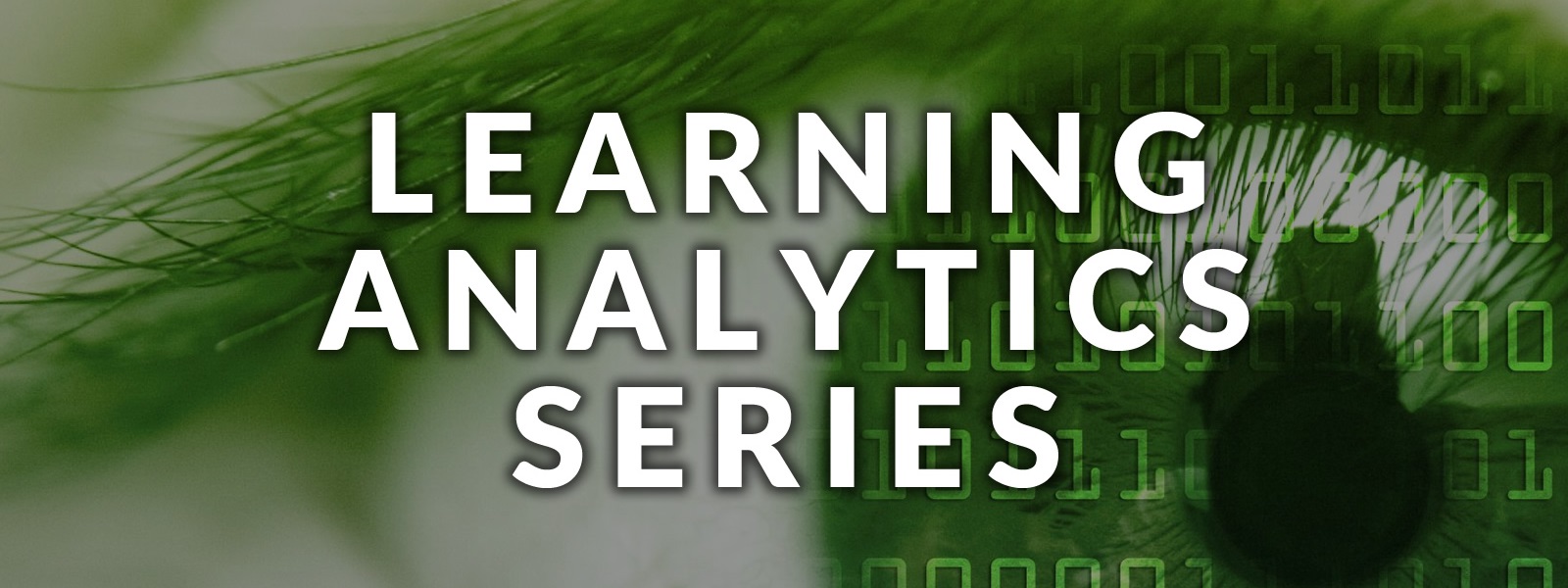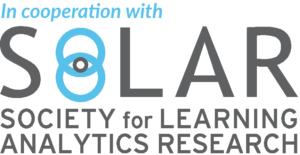
Dr. George Siemens
Dr. Justin Dellinger
Dr. Matt Crosslin
Dr. Dragan Gasevic
Dr. Ryan Baker
Dr. Abelardo Pardo
Dr. Shane Dawson

Participants that complete the Learning Analytics Series had the opportunity to learn various aspects about this exciting and growing field. The Learning Analytics Series has ten courses that helped learners develop highly sought after data and learning science skills that are applicable to positions in K-12, higher education, non-profits, corporations, and the military. The first course ran April 2018. Courses in the series include:
- Learning Analytics Fundamentals
“In this introductory course, learners develop a solid understanding of fundamental learning analytics theories and processes, and explore different types of educational data. Learners gained experience working with educational data sets and the R programming language, and heard from a diverse set of voices in the field. Finally, learners also considered ethics and privacy issues, as well explored how to work as part of a team in a domain that is becoming increasingly cross-disciplinary.”
- Social Network Analysis (SNA)
In this course, participants learned how relationships between people, artifacts, and ideas within learning settings can be analyzed and interpreted through social network analysis (SNA). Participants also learned how to prepare data and map these relationships to help them understand how people communicate and exchange information.
- Cluster Analysis
In this course, participants learned the basics of cluster analysis, one of the most popular data mining methods for the discovery of patterns in learning data, and its application in learning analytics.
- Using Data to Provide Personalized Student Support
This course benefited educational designers, learning technology managers, and academics that are interested in how to use data to guide the design and improvements of a learning experience.
- Natural Language Processing and Natural Language Understanding in Educational Research
This course offered an overview of natural language processing (NLP) and natural language understanding (NLU) for educational practitioners, leaders, and researchers. This class introduced analysis of and analytical tools for research work with unstructured data such as student writing, responses to learner surveys, interview data, or transcripts from an educational setting.
- Feature Engineering for Improving Learning Environments
This course paid particular attention to the ways in which researchers and data scientists can transform raw data into features (i.e., variables or predictors) used in various machine learning algorithms. Instructors provided strategies for using prior research, knowledge from practice, and logic to create features, as well as build and evaluate machine learning models. The process of building features was discussed within a broader data-intensive research workflow using R.
- Predictive Modeling in Learning Analytics
This course introduced learners to the tools and techniques of predictive models as used by researchers in the fields of learning analytics and educational data mining. It covered the concepts and techniques that underlie current educational “student success” and “early warning” systems, giving participants insight into how learners are categorized as at-risk through automated processes.
- Multimodal Learning Analytics
In this course, participants learned about multimodal learning analytics, a different way to do learning analytics. Participants learned how to conduct learning analytics in face-to-face, hands-on, unbounded, and analog learning settings such as classrooms and labs. Participants learned to capture, process, and fuse natural rich modalities of communication, such as speech, writing, and nonverbal interaction (e.g., movements, gestures, facial expressions, gaze, biometrics, etc.) during real learning activities.
- Learning Analytics in Higher Education
This course gave an overview of learning analytics in higher education and introduced the SHEILA framework that can be used to support strategy and policy formation in addition to readiness assessment.

